Publications
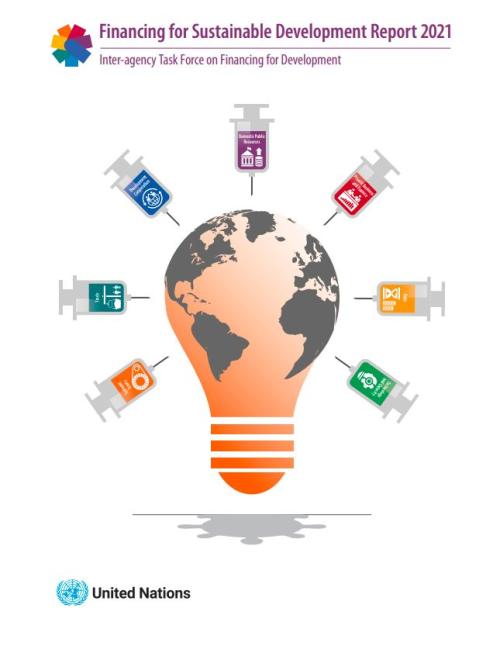
The COVID-19 pandemic is leading to an even more sharply unequal world as the development gains for millions in poor countries are reversed, according to a new report released by the United Nations today.
The Financing for Sustainable Development Report 2021 says the global economy has experienced the worst recession in 90 years, with the most vulnerable segments of societies disproportionately affected. An estimated 114 million jobs have been lost, and about 120 million people have been plunged back into extreme poverty.
Only immediate action can prevent a lost decade for development for many countries.
“What this pandemic has proven beyond all doubt is that we…
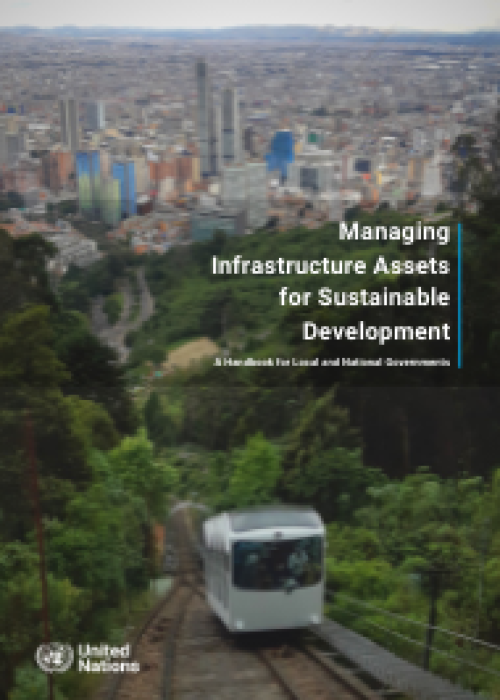
This UN/DESA-UNCDF Handbook represents a significant contribution to the Financing for Sustainable Development agenda, advancing both thought leadership and action. Finalized in the crucible of the COVID-19 crisis, the Handbook brings global visibility to infrastructure asset management as a critical, high impact area for investing in local capacities to mobilize and manage financing for sustainable development, including in emergencies.
With trendy focus on the ‘new and shiny’, old assets often go neglected, while new ones are built without putting in place effective asset management frameworks. Underinvestment in infrastructure maintenance has been estimated to cost some…
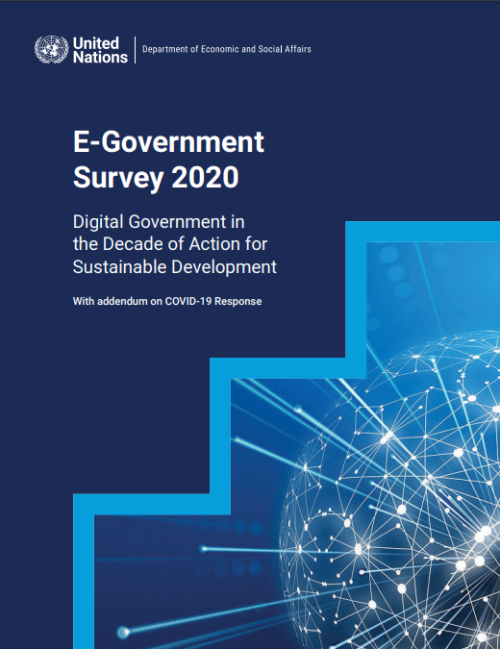
The year 2020 witnessed a transformational change in global development as the United Nations Secretary-General António Guterres called on Member States and other stakeholders to “kickstart a decade of delivery and action for people and planet”, given the short time left to achieve the 2030 Agenda for Sustainable Development. By surveying and studying broad patterns of digital government around the world, the United Nations E-Government Survey assesses the digital government development of the 193 United Nations Member States in identifying their strengths, challenges and opportunities, as well as informing policies and strategies. The Survey supports countries’ efforts to provide…
Governments must take immediate steps to prevent a potentially devastating debt crisis and address the economic and financial havoc wrought by the COVID-19 pandemic – says a new report from the United Nations-led Inter-Agency Task Force on Financing for Development.
The UN System’s 2020 Financing for Sustainable Development Report outlines measures to address the impact of the unfolding global recession and financial turmoil, especially in the world’s poorest countries. Its recommendations are based on joint research and analysis from the UN System, the International Monetary Fund, World Bank Group, and more than 60 UN agencies and international institutions.
Even before…
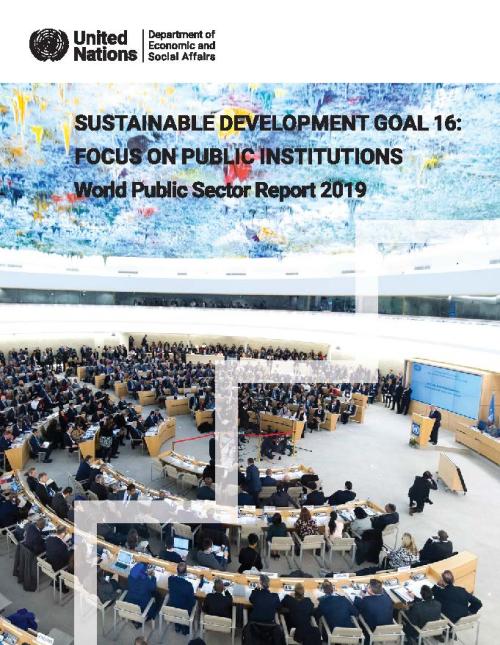
The 2030 Agenda and the Sustainable Development Goals (SDGs) prominently feature institutions, both as a cross-cutting issue in many of the goals and as a standalone goal (SDG 16). The World Public Sector Report 2019 looks at national-level developments in relation to several concepts highlighted in the targets of Goal 16, which are viewed as institutional principles: access to information, transparency, accountability, anti-corruption, inclusiveness of decision-making processes, and non-discrimination. The report surveys global trends in these areas, documenting both the availability of information on those trends and the status of knowledge about the effectiveness of related policies…
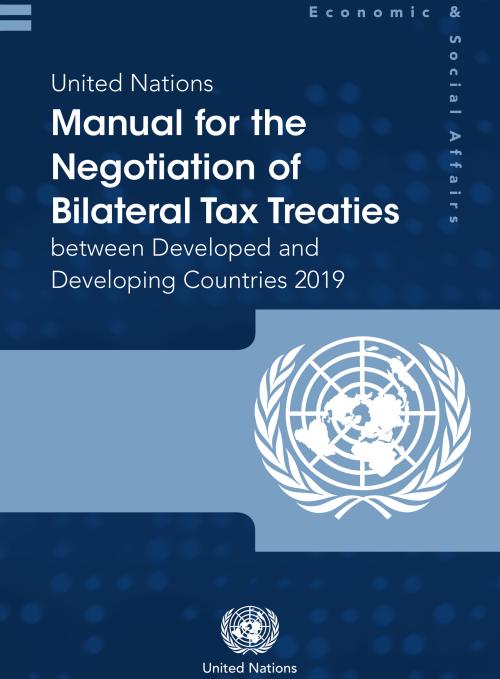
The United Nations Manual for the Negotiation of Bilateral Tax Treaties between Developed and Developing Countries (2019) is a compact training tool for beginners with limited experience in tax treaty negotiation. It seeks to provide practical guidance to tax treaty negotiators in developing countries, in particular those who negotiate based on the United Nations Model Double Taxation Convention between Developed and Developing Countries. It deals with all the basic aspects of tax treaty negotiation and it is focused on the realities and stages of capacity development of developing countries.
While every country should form its own policy considerations and define…
The 2019 Financing for Sustainable Development Report (FSDR) of the Inter-agency Task Force on Financing for Development warns that mobilizing sufficient financing remains a major challenge in implementing the 2030 Agenda for Sustainable Development. Despite signs of progress, investments that are critical to achieving the Sustainable Development Goals (SDGs) remain underfunded and parts of the multilateral system are under strain.
The FSDR recommends that the international community should use this opportunity to reshape both national and international financial systems in line with sustainable development. If we fail to do so, we will fail to deliver the 2030…
Countries in all regions of the world are continuing to make strides in their efforts to improve e-government and to provide public services online according to a new report launched by the United Nations Department of Economic and Social Affairs today.
In a 2018 ranking of countries on e-government development, Denmark, Australia, and Republic of Korea came out on top of a group of 40 countries, scoring very high on an index (the E-Government Development Index—EGDI), which measures countries’ use of information and communications technologies to deliver public services. The Index captures the scope and quality of online services, status of telecommunication infrastructure and…
The 2018 report of the Inter-agency Task Force on Financing for Development finds that most types of development financing flows increased in 2017, and that there has been progress across all the action areas of the Addis Ababa Action Agenda. This progress was underpinned by an upturn in the world economy, but at the same time the report warns that risks could derail development progress and structural impediments continue to undermine sustainable development prospects.
The 2018 report provides policy options which, if implemented, would put the world on a sustained and sustainable growth and development path. It also examines the financing challenges to the SDGs under…
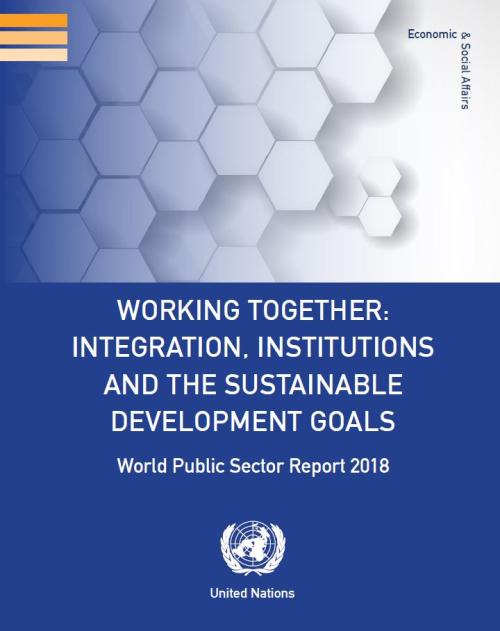
Two years ago, Member States of the United Nations adopted the 2030 Agenda for Sustainable Development. Acknowledging possible synergies and trade-offs between the sustainable development goals (SDGs) and targets will make it much easier to achieve the Agenda and to translate ambition into reality.
The World Public Sector Report 2018 aims to inform efforts by countries to foster policy integration for implementing the SDGs. It asks, what are the challenges to and opportunities for policy integration across the different stages of policy cycle at the national level? What are some innovative examples of institutional and administrative arrangements that can foster integrated…
Continued slow global economic growth is likely to leave about 6.5 per cent of the world population extremely poor in 2030 without national actions supported by international cooperation, according to a new report issued by the United Nations today.
A continuation of the status quo would severely hamper efforts to achieve the Sustainable Development Goals by 2030. The Goals call for eliminating poverty by 2030.
According to the 2017 “Financing for Development: Progress and Prospects” report, under current trends, least developed countries (LDCs) are likely to fall short by large margins.
Projections indicating that global gross product will grow at less than 3…
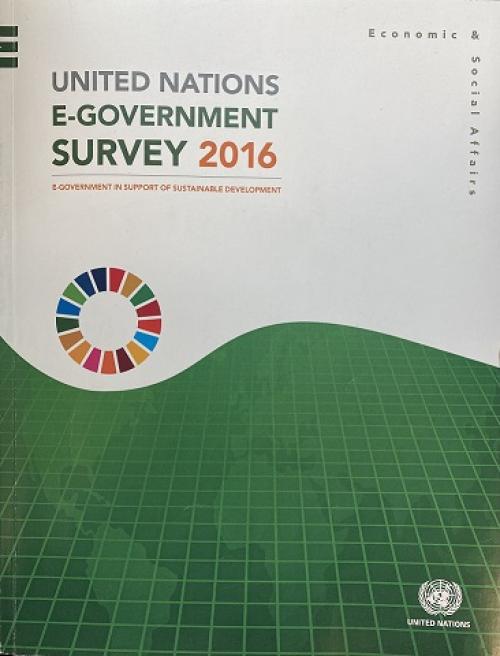
The United Kingdom, followed by Australia and the Republic of Korea, lead the world in providing government services and information through the Internet, e-government, according to a new survey released today by the United Nations showing the progress of nations in promoting e-government.
The 2016 UN E-Government Survey provides new evidence that e-government has the potential to help support the implementation of the 2030 Agenda and its 17 sustainable development goals (SDGs).
The Survey found that United Kingdom has pursued continued development on e-government innovation, and its Government Digital Service has been replicated by other countries around the…
 Welcome to the United Nations
Welcome to the United Nations